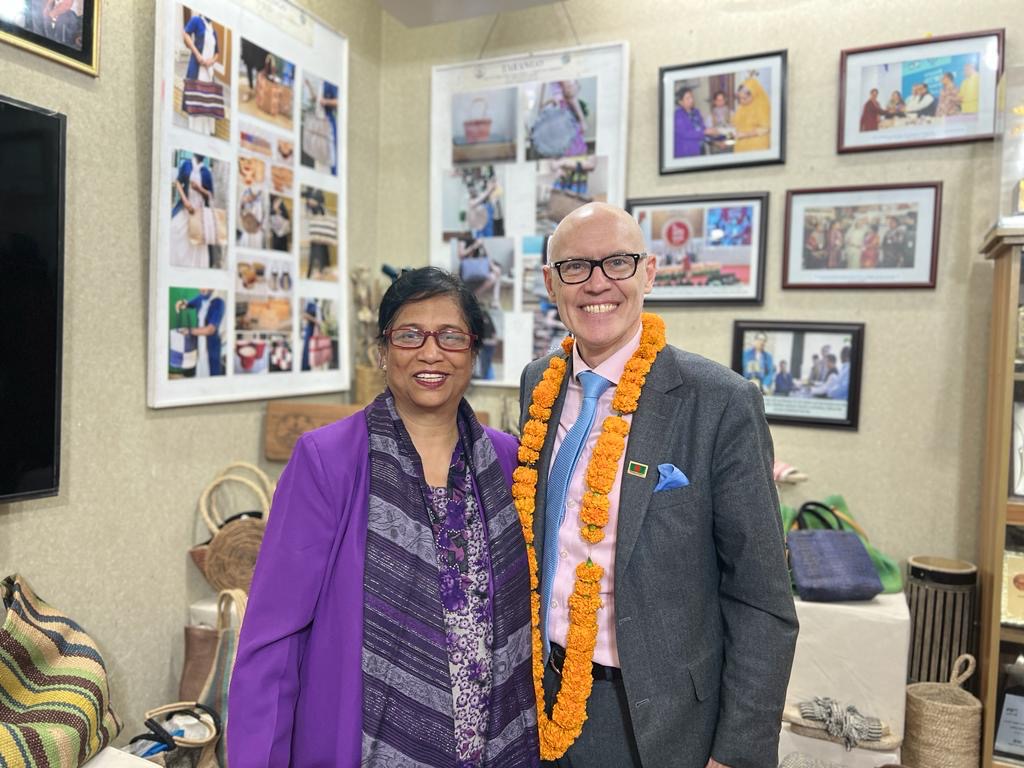
In the week that saw celebrations around the world to mark Commonwealth Day (Monday 13 March), it was very fitting that I was in Bangladesh, speaking at the Bangladesh Business Summit.
It’s always fascinating to travel to see Commonwealth partners and to advocate for UK trade and offer IOE&IT’s support for traders throughout the 56 member nations.
Commonwealth Advantage
To the sceptics who regard the Commonwealth as somehow anachronistic, I point to figures from government showing that intra-Commonwealth investment is 27% higher than trade between non-Commonwealth countries, with bilateral trading costs on average a fifth lower among member nations.
UK businesses need to make the most of what is sometimes referred to as the ‘Commonwealth Advantage’. Intra-Commonwealth trade is cheaper and easier to do because of our shared history, legal systems and initiatives such as the Developing Countries Trading Scheme (DCTS).
DCTS
The DCTS is the UK’s tariff schedule for 65 developing countries globally, including several Commonwealth nations, such as Bangladesh. It replaces the EU’s Generalised System of Preferences, which the UK previously adopted before Brexit.
IOE&IT is “actively supporting” businesses to make use of DCTS.
Going beyond ‘developing’
What really struck me this week was how many countries currently referred to as developing economies have the drive and ambition to be rid of that label. Bangladesh’s prime minister, Her Excellency Sheikh Hasina, spoke strongly about how her country’s economy will reach a GDP of US$1trn by 2030.
But there remain bureaucratic challenges. A commitment to address over 50 areas of bureaucratic challenge in the coming year was very encouraging.
There are also infrastructure challenges. The development of the deep seaport in the south of Bangladesh has been delayed. But when it's completed it will offer a great trading route.
It's these barriers and business practices that prevent external foreign companies from investing in Bangladesh and seizing the opportunities. And it's going to take a great deal of determination not just from politicians, but also from the business community to open up and liberalise the Bangladesh economy.
Economic diversification
I loved hosting a session in Bangladesh focused on the readymade garment sector. This represented politicians and manufacturers, as well as the trade representative bodies from the sector, which is currently the backbone of the Bangladesh economy, with
over 85% of exports being in readymade garments.
There is a desire to diversify that economy. But it's going to take effort, dedication and determination.
I'm hopeful that with the right commitment there is huge opportunity and potential for Bangladesh. It will be what happens in the next couple of years that will really determine whether the ambition for a $1trn, diversified economy will be realised.
IOE&IT is keen to play our part in helping Bangladesh achieve this ambitious target. We can do this by encouraging and facilitating bilateral trade between the UK and Bangladesh.
SheTrades
While I was in Dhaka I visited Kohinoor Yeasmin, CEO of Tarango, a Bangladeshi social enterprise that works with female artisans.
Kolinoor was one of four female entrepreneurs who IOE&IT sponsored to attend the WTO Public Forum last year.
The women were all participants in the International Trade Centre’s SheTrades initiative, which we were delighted to partner with for the Forum.
It was particularly exciting to hear first-hand from Kohinoor the impact attending WTO had had on her business. She told me she had met “a lot of contacts” at the Forum and has since been able to employ 50 more young women on the back of the business generated there.
As Kohinoor explained, this really matters a lot because of the extent these women depend on the business. For many of these women their full income goes to their children’s education. Many of them are also the only earner in their house and are earning for the whole family.
Zurich trip
On the way back from Bangladesh, I headed to Zurich to represent IOE&IT members at the UK-Switzerland Business Trade and Investment Council meeting.
We were updated on the negotiations taking place for a comprehensive free trade agreement between our nations covering services, innovation and trade in goods.
We look forward to further developments in the trade talks and supporting our members to benefit from the deal once it is signed an ratified.
